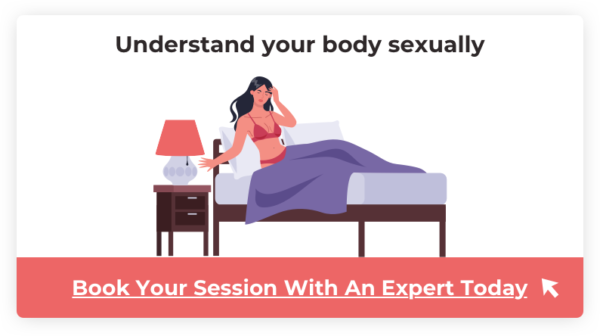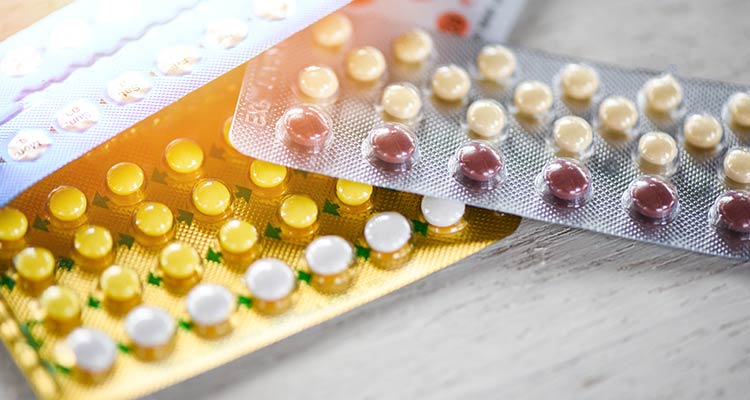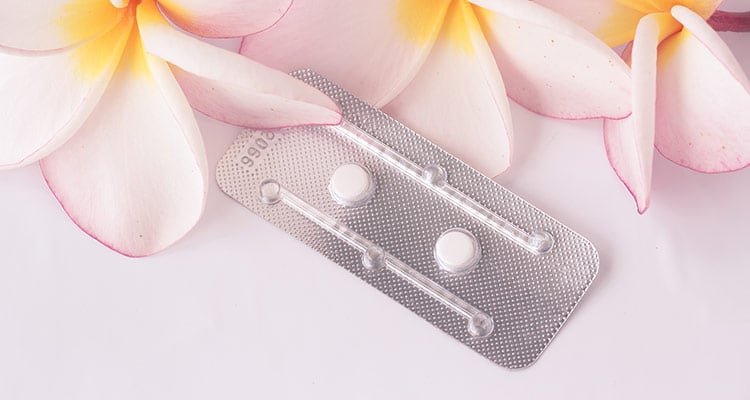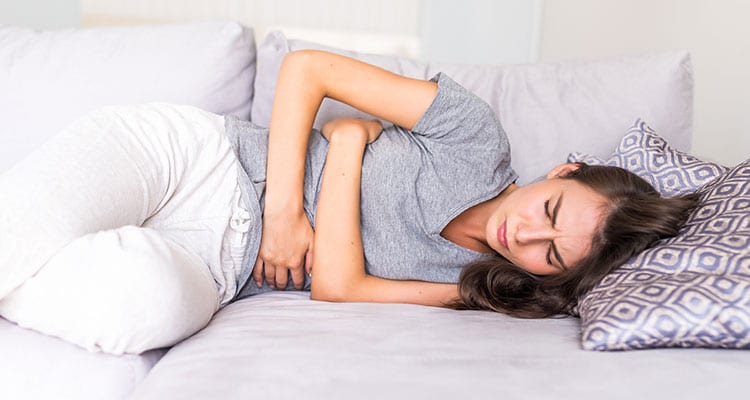Emergency pills come to your rescue at a time like that. But know that you should not be washing them down after each sexual encounter. While the 72-hour pill is a great option to avert an unplanned pregnancy, it must be reiterated that it needs to be used sparingly and not as a replacement for your regular contraceptive.
Emergency Contraceptive Pills – Uses
Whether it is a case of a one-night stand, forced or unwanted sex, rape, or failure of regular contraceptive methods, these incidents can result in an unwanted pregnancy. To save you from the nightmare of unwanted pregnancy, over-the-counter emergency contraceptive pills (ECPs) a.k.a. Plan B comes to your aid.
Even though the use of these morning-after pills is very common, many of us still don’t know how they work and the way they affect our system. There are actually a good number of side effects of emergency contraceptive pills that one should be aware of.
Whether or not you had to pop one before, if you are a sexually active woman, then knowing all about the ECPs makes you ready to stall the repercussions of a sexual ‘oops’ moment.
All You Should Know About The Morning After Pill
To understand how the ECPs come in handy after unsafe sex, we need to understand the science behind these pills and how they work. Is it safe to use emergency contraceptive pills? Yes, but only in a minimal amount. There are many myths about what they can and cannot do. So let’s debunk those right now and understand the right way to use emergency contraception:
1. ECPs are not abortion pills
Emergency contraceptive pills or ECP or morning-after pill or Plan B – whatever you may call it, is not an abortion pill. The single-dose pill can be used after unprotected sex or failure of a primary birth control method to prevent unwanted pregnancy. Enjoy all your sexual liberation but safety first or else you’ll be running to the drugstore to get an ECP. Know that this pill does not work if the conception has already happened. These pills cannot interfere with an existing fetus or trigger an abortion. Emergency contraception only works at the time of an emergency. They are effective if taken within 72 hours of unprotected sex. The sooner you have it, the better the success rate.
2. How do emergency contraceptive pills work?
ECPs prevent pregnancy by delaying ovulation to make sure your ovary takes longer than usual to release the eggs, thereby preventing fertilization. These pills are basically hormonal in nature, most of them containing levonorgestrel – the synthetic version of progesterone. The ‘morning-after pills’ can only prevent a pregnancy if the eggs have not been fertilized. They are not effective if implantation has already taken place.
3. When should you take a morning after pill?
As soon as you can. Ideally, you should take an over-the-counter ECP within 72 hours after an episode of unprotected sex. ECPs are quite effective in nature and can prevent up to 95% of pregnancies. Even though the pills are also called morning-after pills, you do not necessarily have to wait till the next morning to take one. You can take it any time of the day, as long as it’s within 72 hours.
4. In what situations can ECPs be used?
Emergency contraceptives are most commonly used under the following circumstances:
When no form of birth control was usedIf the condom broke or slippedIf the cervical cap came off, tore or was taken out too earlyIf you missed taking birth control pillsIf you used contraception incorrectlyIn case of sexual abuse and rape without contraception coverage
Are Emergency Contraceptive Pills Completely Safe?
It’s a good thing that this question is on your mind. Is it safe to use such pills? Before you put anything in your body, you should have enough knowledge of what it is and how to take it. To find the answer to this frequently asked question, Bonobology reached out to Dr Meena Jhala (Consultant Obstetrician and Gynaecologist, IVF and Infertility Specialist) from Mayflower Women’s Hospital, Ahmedabad. Since ECPs are single-dose hormonal pills meant for emergency purposes, in that sense it’s completely safe to use. “But repeated use of emergency pills is also not advisable,” said Dr Jhala.
What Are The Side Effects Of Emergency Contraceptive Pills?
You may not want an unplanned pregnancy right now, but what about the time when you do want one? You still want the option of asking yourself, “Should I have a baby?” sometime in the future. Using ECPs to avoid the after-effects of unsafe sex also comes with a big concern about their effect on your fertility. Sexually active young adults who frequently resort to taking the route of Plan B also worry over its effect on periods, whether they can mess up their cycle or induce menopause when taken for a longer period of time. To put an end to the concerns, Dr Jhala gives us her expert medical opinion. “It can have immediate effects on one or two cycles, but nothing after that. It can make periods delayed over one week or so, but there are no side effects on future fertility or menstruation cycle,” she said. However, prolonged and frequent use of ECP should be avoided. Switching to primary birth control measures is always safer and more effective in the long run.
Do they come with any additional benefits?
Hormonal pills are used to treat a range of medical problems for women, but are there any medical benefits of ECPs? According to Dr Jhala, there are none. Emergency pills come with no benefits other than preventing unwanted pregnancy.
Are there any real contraindications to ECPs?
Even though morning-after pills are completely safe to use and have no serious or long-term side effects, they are not medically advisable to “those women who are allergic to it or have any pre-existing medical condition such as liver problems or cardiac issues,” said Dr Jhala. The only time using emergency pills is contraindicated is when you know that you are already pregnant or suspect pregnancy. The reasons are twofold. First of all, in case you are already developing an embryo, the pills won’t work. Second, using emergency contraception in this stage will increase your risk of infection. No matter how against the idea of unplanned pregnancy you are, when the foetus is already there, this is something you definitely don’t want. Additionally, you should not use emergency pills when you are breastfeeding, as the effects are unknown. With pleasure comes responsibility, and when dealing with ECPs, you should be clear on everything.
Spoiler alert
All said and done, these pills are not 100% effective. They have about a 5% failure rate. This means 5 out of 100 women using ECPs can get pregnant! A lot of their effectiveness depends on when you are taking the pill and whether you are in the ‘safe zone’ of your menstrual cycle. So even if you have popped the pills, get tested if your next period gets delayed longer than usual. Also, please use condoms instead of going for Plan B. Emergency contraceptive pills will not protect you from sexually transmitted diseases.





